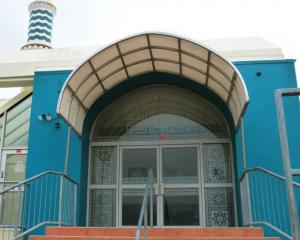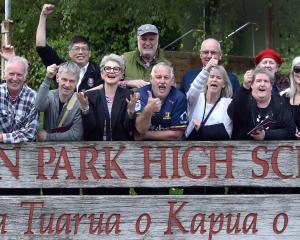This month's vote on whether to allow Fonterra shareholders to trade shares between themselves is about more than convenience.
It is about ensuring the co-operative has sufficient capital for growth in order to improve its performance, which - and directors may not say so - will also make it less attractive for Fonterra shareholders to cash in their shares and take their milk to another processor.
There is quiet confidence shareholders will give the board the required 75% support needed to pass the proposal, evident by the lack of any vocal shareholder opposition.
The greatest opposition has come from the chairman of rival processor Open Country Dairy, Laurie Margrain, who has warned Fonterra's share price would collapse because of the limited market.
The Fonterra board wants a decisive endorsement of its proposal, and it is known that canvassing of shareholders in the South has found overwhelming support.
But there is a fear farmer apathy could dampen the vote.
While funding growth is important, Fonterra chairman Sir Henry van der Heyden has recently changed tack and started talking about food security and what he sees as significant threats to its and New Zealand's food-producing base.
The dairy industry has traditionally prided itself on unity, but news last week another two milk processing companies plan to be operating in time for the 2011-12 season will take the number of companies to eight, potentially undermining that unity.
Sir Henry said, rather than losing suppliers to other companies, a greater threat to Fonterra came from a financially strong and well-resourced international player setting up business.
"The Fonterra board sees that as a real risk to Fonterra.
We're not uncomfortable with competition - we're very supportive of competition - but it has got to be on a level playing field," he said earlier this year.
Fonterra is trying to counter these threats, and expand its business and profitability within the confines imposed by shareholders in 2007, when they categorically threw out the option of a partial public float.
It needs to stem the loss from its balance sheet as a result of redemption risk, highlighted two years ago, when it had to redeem $700 million worth of shares.
Shareholders must own one share for every kg of milk solids produced, and in any one year between 400 million and 1.1 billion shares are exchanged as farmers balance shares owned with that season's production.
Shareholders have already partly addressed the need for an annual share wash-up by allowing the ownership of up to 120% of required shares, but this latest proposal would allow farmers to buy more dry shares, which would in turn increase the company's capital base.
Equally, changes to the milk price include a dividend payment based on the profitability of Fonterra's business activities, and shareholders have already approved changes to the way the shares are valued to take into account the market being limited to Fonterra suppliers.
In recent months, Fonterra has announced plans for a new processing factory in Canterbury; bought outright a processing plant in Saudi Arabia; and last week its DairiConcepts joint venture, with Dairy Farmers of America, announced the purchase of United States Italian hard-cheese business Swiss Valley Farms.
The company produces private label fresh-grated and dry-grated Italian hard cheeses for retail, food-service and industrial customers, and the purchase would cement DairiConcepts' position as the No 2 player in the US Italian hard-cheese market.
Fonterra has also signalled its intention to invest more heavily in more profitable, higher-value products and activities.
These include new technology, C21 cheese and CHEDDARplus; infant, child and adult milk; the development of dairy industries in India and China; and the pursuit of other acquisitions and investments.
In 2007, farmers rejected a partial float, and Clarendon farmer Tony McDonnell said shareholders could not afford to reject this alternative option.
If it was rejected, Fonterra would have to reduce immediately its debt-equity ratio to 40% so it could live with that redemption risk, he said.
He could not see an obvious plan C to address the issues facing Fonterra, let alone to provide a mechanism to raise the capital needed to expand the company and its profits.
"It is absolutely essential it goes through," he said.
Main points:
Stage three of Fonterra's capital restructuring.
• Shares can be bought and sold among shareholders or via a new entity, the Fonterra Shareholders Market.
• Shareholders can own shares up to twice their annual production, with individual holdings capped at 5% of total shares on issue.
• The number of dry shares would be capped at 20% of total shares on issue.
• A registered volume provider will be appointed to ensure sufficient share volume and a stable price.
• Fonterra Shareholders Fund will be formed to allow shareholders to forgo the right to dividends and any gain or loss in share price in return for cash.
• Outside investors can buy units in the fund but would not have voting rights.
• Proposal has support of Fonterra Shareholders Council.
• Shareholders to vote on June 30, with support from 75% of voters required.












